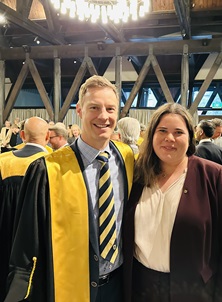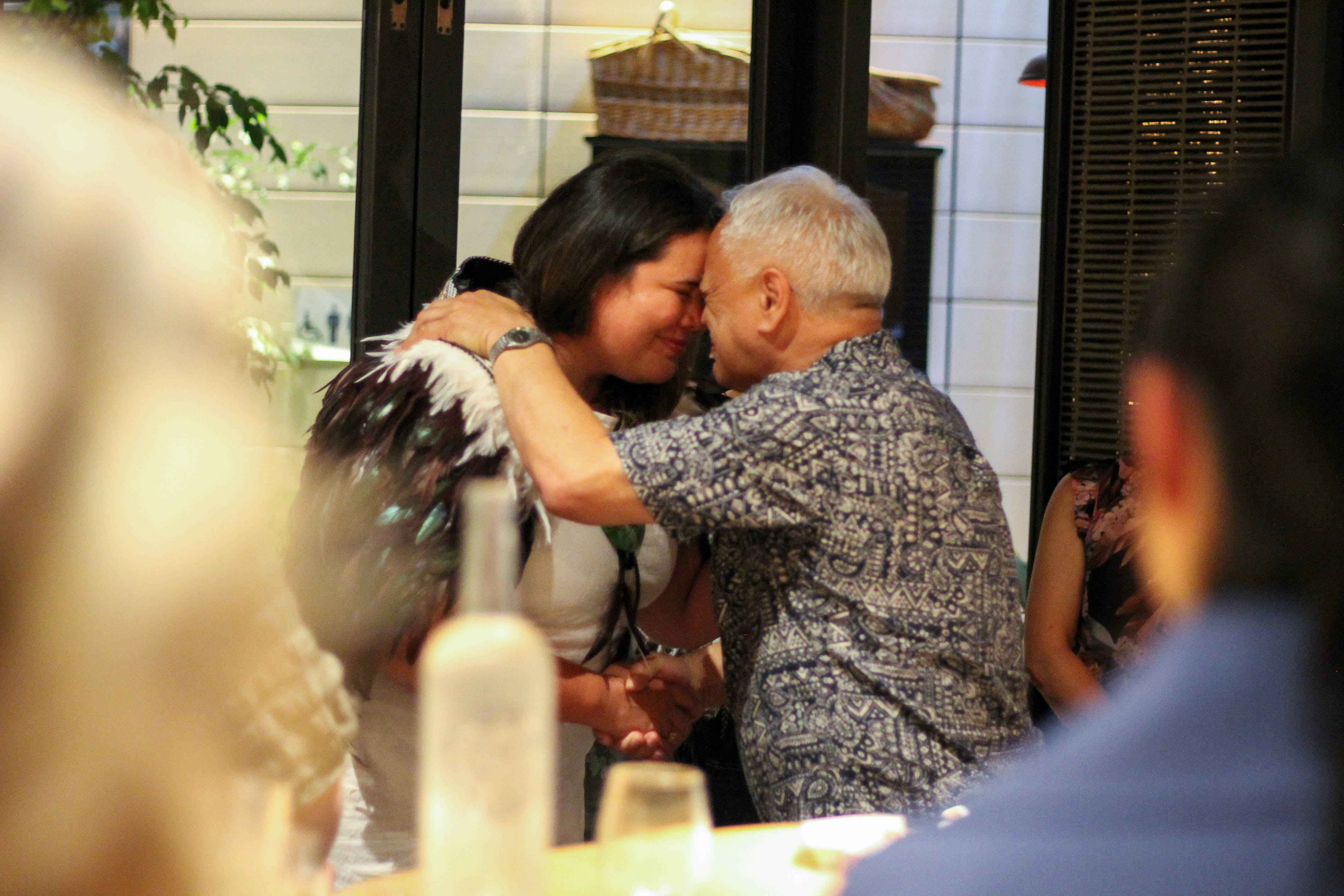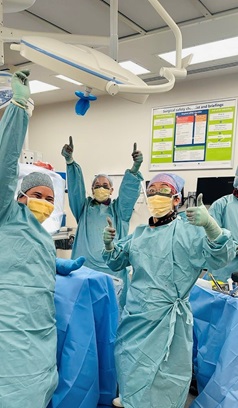2025 | Volume 26 | Issue 4

Dr Teriana Maheno is one of the first two Māori women to become an orthopaedic surgeon in Aotearoa New Zealand, breaking new ground in the country’s medical field. A proud descendant of Ngāti Kahu, Te Aupōuri and Te Rarawa, Dr Maheno combines strong clinical skills with a commitment to cultural respect and equity in healthcare.

Her surgical training was marked by academic distinction and a strong sense of purpose. She was honoured with a korowai (Māori cloak)—Te Mātauranga Hāparapara—symbolising the pursuit of knowledge and breaking new ground.
Initially drawn to biostatistics and public health, Dr Maheno later realised her passion for hands-on, people-centred work leading her to medical school. During her time at the Dunedin School of Medicine, University of Otago, she discovered a love for orthopaedics. “I’m quite a practical person,” she says. “I think I was always going to end up in a specialty with a technical aspect.”
But it was the culture and camaraderie of the orthopaedic team at Tauranga Hospital where she started as a house surgeon that sealed the deal. “The department is amazing; it’s almost impossible to work here and not want to be an orthopaedic surgeon.”

Representation and responsibility
As a Māori woman in orthopaedics, Dr Maheno acknowledges the weight of representation. "When you belong to a minority group—whether gender or ethnicity—it’s not uncommon to be the first or the only," she says.
“There aren’t traditionally many women or Māori in orthopaedics, but there are women and there are people of Māori heritage. I think it was only a matter of time before someone who was both a woman and Māori entered the field. It just happened to be Ruth (Dr Ruth Tan) and me.”
While progress is being made—Aotearoa New Zealand’s orthopaedic training program now sees near gender parity in new entrants—gaps remain. “For example, there are no women spine surgeons yet in Aotearoa New Zealand. And this year saw the first woman Pacific Island orthopaedic surgeon complete FRACS—my good friend Dr Ailsa Wilson. So, there’s still momentum needed,” she says.
Dr Maheno actively advocates and mentors, driven by the belief that visibility matters. "Seeing someone like you can be really powerful."
She is candid about the pressures that come with being ‘the first’. “There’s always been an expectation—from myself mostly—to be involved in advocacy and to show you can succeed regardless of gender or ethnicity.”
Though she never had role models who looked exactly like her, she speaks with gratitude about the mentors she has had—Māori, women, and otherwise. “Orthopaedics is full of smart, hardworking, phenomenal people. I’ve never felt unsupported, which I know isn’t everyone’s experience.”
Cultural identity in practice
Her Māori identity informs how she practises medicine. “It’s all about communication,” she says. “A diverse background helps you understand how cultural context shapes a patient’s healthcare journey. I enjoy spending time with patients—that’s where I get most of my job satisfaction.”
The next chapter: global learning
After completing her FRACS last year, Dr Maheno is pursuing a Master’s degree at Oxford University—a part-time program that requires frequent travel between hemispheres. “I’ve been flying to the UK every seven to eight weeks.”
She’s now in Dublin for a 12-month Adult Spine Surgery Fellowship at Mater Misericordiae Hospital. This will be followed by another year at Melbourne’s Royal Children’s Hospital focusing on paediatric spine surgery.
Dr Maheno has chosen these Fellowships for their high surgical volume and hands-on experience. She plans to bring back this expertise to Aotearoa New Zealand to enrich care in her community.
She reflects on work-life balance: “I don’t think it exists in a perfect way. Some periods are more work-focused, others more personal. It balances out over time.”
Firmly rooted in surgery’s fast pace, Dr Maheno signals a future for Māori health leadership where excellence meets equity and tradition walks hand in hand with change.